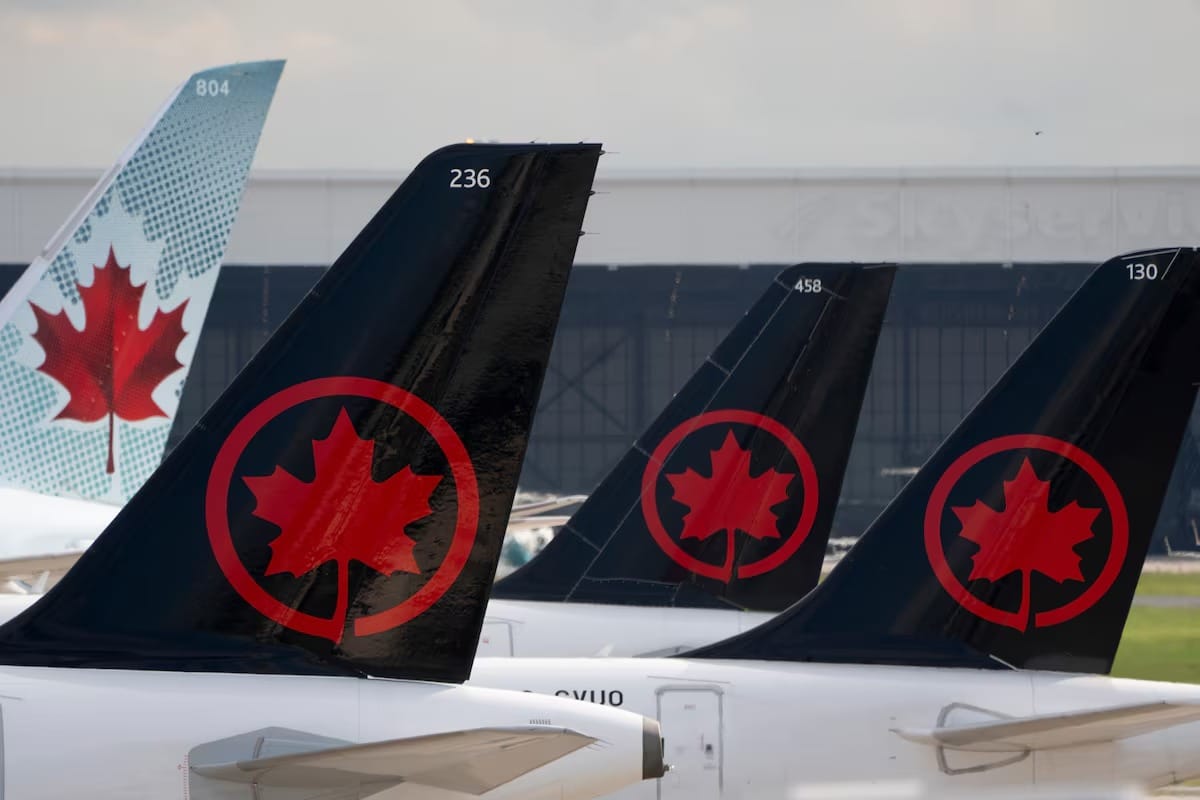Air Canada to increase direct flights to China as Ottawa lifts restrictions
Canada’s largest carrier said in a statement it will be resuming daily service from Vancouver to Beijing on January 15 and will be increasing its Shanghai flights to daily starting on December 7.

Air Canada (AC-T) announced on Wednesday that it will be increasing direct flights between Canada and China, which are still below pre-COVID levels despite the airline expanding capacity on other Asia Pacific routes.
Canada's largest airline stated in a release that it will resume daily flights from Vancouver to Beijing on January 15 and will elevate its Shanghai service to daily flights starting December 7.
According to the news arm of China’s aviation regulator, this development follows Ottawa's recent removal of a 2022 cap on the number of services Chinese airlines could operate to Canada.
CAAC News, the official publication of the Civil Aviation Administration of China, noted that the increased flight frequency between China and Canada is expected to enhance trade, support economic growth, and further the recovery of air transport between the two nations. A source from Canada confirmed this information to Reuters.
In July, Canada agreed to stabilize relations with China, pledging to engage in "pragmatic" discussions with the world's second-largest economy, even as trade has remained a contentious issue between the two countries.
Flights between Canada, the United States, and China have not fully resumed since the lifting of COVID-era travel restrictions, even as airlines are adding more seats to other Asia Pacific destinations. Earlier this year, Air Canada stated it anticipates stronger demand for Pacific routes in the latter half of 2024.
Chinese airlines are reportedly speeding up their applications for additional flights, according to the CAAC report.
Conversely, major U.S. passenger airlines have delayed the resumption of certain flights to China due to weak travel demand between the two largest economies.
In 2019, Air Canada was operating up to 35 flights per week to China, including from Toronto, while Chinese airlines conducted 76 direct round-trip flights, as per Cirium flight schedule data.
China subsequently implemented strict travel restrictions, effectively shutting its borders due to a zero-COVID policy and suspending many inbound flights.
In February 2022, Canada announced that Chinese carriers could operate only six round trips a week into the country, with no direct flights between Canada and Beijing.
These restrictions were lifted on Friday, according to an order from the Canadian Transportation Agency.
“We value Canada’s initiative and hope Canada will continue to create favorable conditions for normal personnel exchanges between both countries,” said Lin Jian, a spokesperson for the Chinese foreign ministry, during a regular news briefing on Wednesday.
Canadian airlines face a competitive disadvantage compared to their Chinese counterparts, as they have not been able to fly over Russian airspace since the outbreak of the war in Ukraine in 2022. This limitation renders flights from Canada’s eastern cities, like Toronto, commercially unviable due to longer travel times.
In contrast, Chinese airlines continue to use shorter northern routes over Russian airspace to Europe and North America, which has allowed them to gain market share from non-Chinese carriers due to this competitive edge.
Bilateral relations, established in 1970, soured in 2018 when Huawei’s Chief Financial Officer Meng Wanzhou was arrested in Canada, prompting China to detain two Canadians in response. All three individuals were later released, but allegations of Chinese interference in Canada have kept tensions high.
In recent months, both nations have experienced increased trade friction, especially after Canada stated it was "absolutely" considering banning Chinese-made software in electric vehicles as part of efforts to address overcapacity and security concerns.
In September, Beijing initiated an anti-discrimination investigation into the restrictive measures imposed by Canada, which include additional tariffs on Chinese electric vehicles, steel, and aluminum products.
In July, following the first visit by a Canadian foreign minister to China in seven years, Beijing agreed to normalize relations with Ottawa.





